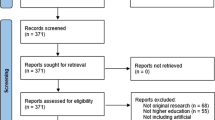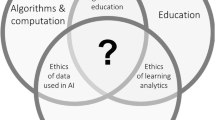Abstract
The International Maritime Industry (IMI) is a global web of shipping, connecting all Continents and bringing together mariners from a multitude of national, ethnic and linguistic backgrounds. Wherever humans interact, they communicate in some form or another and the ability to communicate competently is the cornerstone of safety at sea. This paper identifies the growth of English as the lingua franca of the sea, as a framework for the later discussion on current teaching practices. We consider that Maritime English (ME) fits into the category of a special-purpose form of English, in that it has generated, modified or adopted from other languages many terms and phrases that are only used in the IMI. This paper considers safety-to-practice as a factor in curriculum design, teaching and assessment as the basis for ME competence. Further, we propose opportunities to move industry focus forward, through collaboration with stakeholders and discussion about teaching practices. This paper identifies a gap in maritime teaching practices. This paper further explores the use of authentic teaching as a way forward to improve maritime communication.
Similar content being viewed by others
References
Ahmmed R (2018) The approaches of teaching and learning maritime English: some factors to consider. BMJ 2(1):105–120
Apostol-Mates R, Barbu A (2015) Is maritime English the key in solving communication problems within multinational crews? International Conference Knowledge-Based Organization
Broeze F (2002) The globalisation of the oceans: containerisation from the 1950s to the present. International Maritime Economic History Association
Brower A, Bischof M, Halverson E (2012) Backward design for curricular and course (Re)Design. Provost Office & Teaching Academy
Brunton M (2009) An account of ESP-with possible future direction. Engl Specif Purp 3(24):1–15
Buendgens-Kosten J (2014) Authenticity. ELT J 68(4):457–459
Burke P, Porter R (1995) Languages and jargons: contributions to a social history of language. Polity Press
Butler K (1994) Cross-cultural perspectives in language assessment and intervention. Aspen Publications
Butt A (2014) Student views on the use of a flipped classroom approach: evidence from Australia. Bus Educ Accredit 6:33–43
Centre Seafarers International Research (1999) The MARCOM project, final report: the impact of multicultural and multilingual crews on maritime communication. Cardiff University Press
Crystal D (2012) English as a global language. Cambridge University Press
Dudley-Evans T (1978) Developments in English for specific purposes: a multi-disciplinary approach. Cambridge Univeristy Press
Evangelos T (2002) Language barriers and miscommunication as a cause of maritime accidents. Thesis, MERCHANT MARINE ACADEMY OF MACEDONIA
Ferritto V (2016) Maritime education factors and Presenteeism: a comparative quantitative study. WMU J Marit Aff 15:353–380
Ghosh S, Bowles M, Ranmuthugala D, Brooks B (2017) Improving the validity and reliability of authentic assessment in seafarer education and training: a conceptual and practical framework to enhance resulting assessment outcomes. WMU J Marit Aff 16:455–472
Hull M (2004) Changing the paradigm for medical English language teaching. International Symposium of English for Medical Purposes,China
IMO (2018) http://www.imo.org/en/OurWork/Safety/Navigation/Pages/StandardMarineCommunicationPhrases. Accessed 4 May 2018
James A, Chin C, Williams B (2014) Using the flipped classroom to improve student engagement and to prepare graduates to meet maritime industry requirements: a focus on maritime education. WMU J Marit Aff 13:331–343
Kim Y (1992) A functional-notional approach for English for Specific Purposes (Esp) program. The Southwest Educational Research Association, Houston
Lau Y, Ng A (2015) The motivations and expectations of students pursuing maritime education. WMU J Marit Aff 14:313–331
Mackay R, Mountford A (1978) English for Specific Purposes: a case study approach
Mattar J (2018) Constructivism and connectivism in education technology: active, situated, authentic, experiential, and anchored learning. Centro Universitatio Uninter, Brasil (preprint)
Muirhead P (2004) New technology and maritime training in the 21st century: implications and solutions for MET institutions. WMU J Marit Aff 3:139–158
Munby J (1981) Communicative syllabus design: a sociolinguistic model for designing the content of purpose-specific language Programmes. Cambridge University Press
Norton J (2018) Lesson study in higher education: a collaborative vehicle for professional learning and practice development of teachers of English for specific purposes. Spring 11:95–109
Pallis A, Ng A (2011) Pursuing maritime education: an empirical study of students’ profiles, motivations and expectations. Marit Policy Manag 38:369–393
Piloting Marine Navigation and (1994) Minding the Helm. Washington DC: National Academy Press
Pratt D (1998) Five perspectives on teaching in adult and higher education. Krieger Publishing Company, USA
Pritchard B (2005) A survey of maritime English teaching materials: a report on the current state of the art. IAMU Conference
Progoulaki M, Roe M (2011) Dealing with multicultural human resources in a socially responsible manner: a focus on the maritime industry. WMU J Marit Aff 10:7–23
Roberts C (1992) Language and discrimination : a study of communication in multi-ethnic workplaces. Longman, London
Salmon G (2013) E-Tivities: the key to active online learning. Routledge
Schriever U (2008) Maritime communication in an international and intercultural discourse. PhD Thesis, University of Tasmania
Schumann J (1986) Research on the acculturation model for second language acquisition. J Multiling Multicult Dev 7:379–292
Seafarers International Research Centre (1999) The MARCOM project, final report: the impact of multicultural and multilingual crews on MARitime COMmunication. Cardiff University Press, Cardiff
STCW (1995) Standards of training certification and watch keeping IMO
Symposium SeaTALK Maritime English (2015). http://www.imla.co/imec/SeaTalk. Accessed 30 Mar 2015
TeachingEnglish https://www.teachingenglish.org.uk/article/authentic-task. Accessed 17 Apr 2018
Trenkner P, Cole C (2010) Raising the Maritime English Bar: the Stcw Manila Amendments and their Impact on Maritime English. Proceedings of the 22nd International Maritime English Conference
Wardhaugh R (2010) An introduction to sociolinguistics. John Wiley& Sons
Weeks F F (1983) Towards an international maritime language: the concept of seaspeak. London
Wiggins G, McTighe J (2005) Understanding by Design. ASCD Books
Ziarati R (2006) Safety at sea—applying Pareto analysis. Proceedings of World Maritime Technology Conference
Acknowledgements
The basis for this paper came in part from the doctoral study of the second author.
Author information
Authors and Affiliations
Corresponding author
Rights and permissions
About this article
Cite this article
James, A.J., Schriever, U.G., Jahangiri, S. et al. Improving maritime English competence as the cornerstone of safety at sea: a focus on teaching practices to improve maritime communication. WMU J Marit Affairs 17, 293–310 (2018). https://doi.org/10.1007/s13437-018-0145-4
Received:
Accepted:
Published:
Issue Date:
DOI: https://doi.org/10.1007/s13437-018-0145-4




